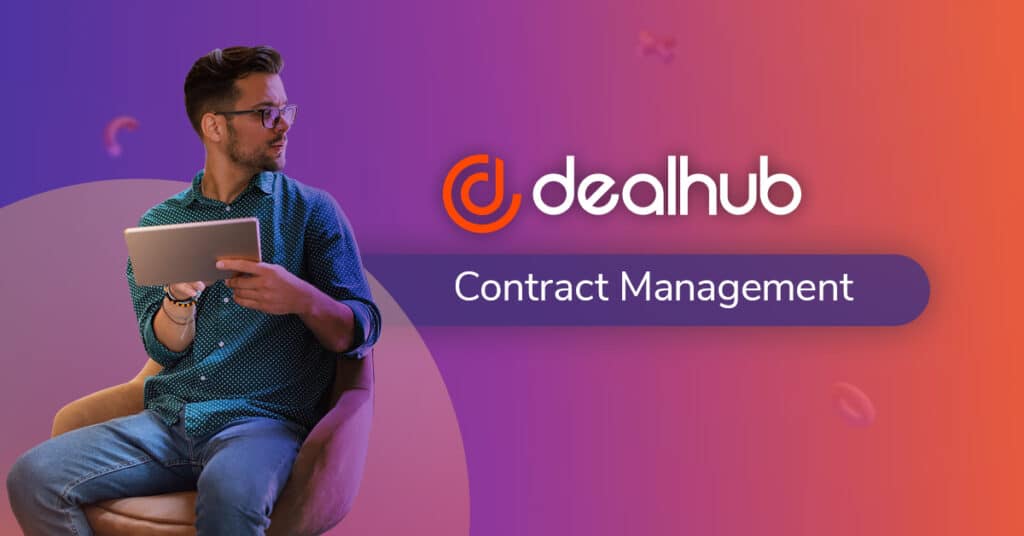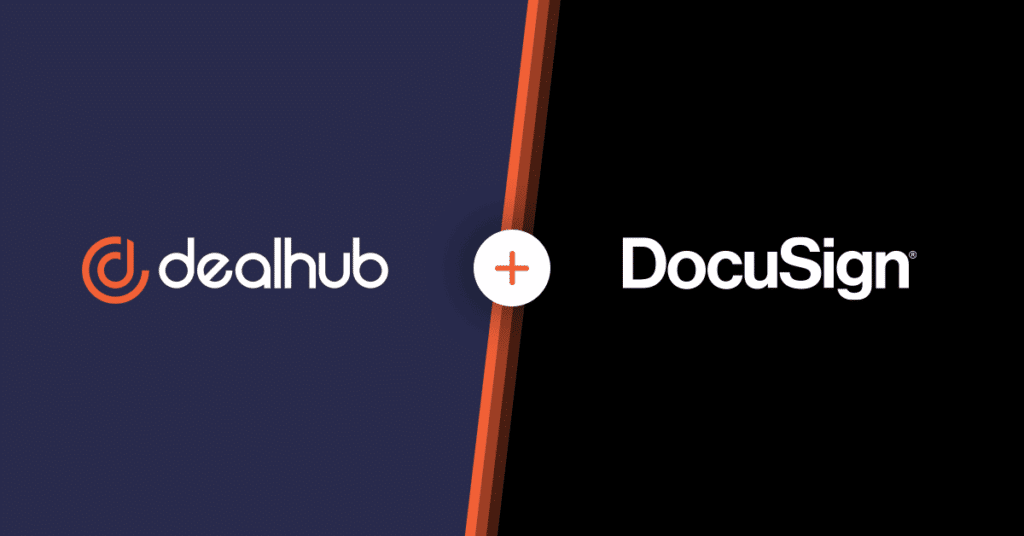Why You Need Contract Management Software

B2B companies depend on efficient contracts to manage business relationships. The most common causes of project failures are problems with contracts and commercial operations.
Contract Management Software is essential to ensure suppliers, manufacturers, and distributors are on the same page. Negotiating a contract involves a significant investment of time and effort. Contract management allows companies to get the most out of these agreements.
Generate Contracts Faster
Generating contracts with manual processes are slow. Companies must generate the proper legal provisions to match the terms and conditions. This requires understanding what products are in the deal, how they act together, and the contract’s jurisdictional venue for liability purposes. Product bundling must be reviewed for any dependencies and/or pricing discounts.
For subscription-based contracts, this can get even more complicated. Co-terming must be taken into account, and the deal should be vetted for its similarities to other deals of the same type.
All of this takes time when it isn’t automated. Departments must coordinate with one another to make sure that each of their individual areas of responsibility is covered, while still creating a contract that makes sense for the quote submitted by the sales rep.
DealHub’s DealRoom offers next-generation contract management capabilities that handle all of these problems. Teams can automatically add in the relevant boilerplate language, the pricing and configuration details, and more.
Streamline Negotiations with Integrated Redlining and Approvals
B2B Contracts are almost never signed in their original form. Once complete, they are sent to the prospect for negotiation. That often sets off a long process of back-and-forth discussions and changes to the document.
Manual contract negotiation processes are extremely difficult to handle. Even when done ‘well’ they take a huge amount of time and resources. Every proposed change needs to be communicated to relevant stakeholders, who then must send approval or a request for additional changes, often creating multiple parallel discussions.
A knock-on effect of all that manual back and forth is a serious problem with contract version control. Different stakeholders will have different versions of the contract on their desktop, which they all consider “final” since it reflects their required changes. Versions must be manually reconciled into one, finalized contract before anyone can sign—a process that risks errors making it into the final agreement.
DealRoom’s contract management software eliminates these problems. Its integrated redlining allows all stakeholders to work on the document simultaneously, in full view of one another. That keeps everyone on the same page about what is the current version of the contract.
When the negotiation reaches its conclusion, there is a single source of truth that ensures not only that all the parts of the contract integrate with one another, but that the correct version is sent to the prospect for signature.
Create Fully Integrated Sales Proposals with E-signature
Once the contract is finalized, it must be signed. With manual proposals, the finalized version must be sent to all stakeholders, and then returned with countersignatures. This adds additional friction to the sales process, right before the prospect is ready to sign on the dotted line.
In contrast, DealRoom’s next-generation contract management software includes integrated e-signature, including an integration with Docusign. The single source of truth created by redlining presents a ready-to-go signing opportunity–eliminating the friction in the customer experience and getting the deal to closed won as soon as possible.

Decrease Approval Times
If a contract arrives in an unclear format or is not delivered on time, costly delays can result. Contract management cuts approval time and helps all parties get to work faster. Automated workflows speed up the process and allow quick scanning of contracts. This solution improves contact and communication between parties and makes it easier to answer questions and clarify points prior to approval.
If there is a lot of back and forth, miscommunication, missed comments, and unanswered questions, it doesn’t bode well for an ongoing working relationship. The smoother the initial approval goes, the more confidence partners and clients have in each other, and the terms will be apparent to everyone. Getting the other party to sign requires enough effort that the path to signing the contract should be seamless.
Increase Visibility for Cross-departmental Stakeholders
A contract is sometimes between just two parties but in some cases, there are others who request visibility into contracts and operations. Granting access to stakeholders gives them a window into projects. Since they are interested in the company, they will want to ensure that everything is running smoothly.
Contract management allows access to stakeholders and other interested parties through a password. Old-fashioned paper contracts can make sharing information tedious with many steps, but with contract management, those who are authorized can gain access to contracts affecting their investment. Centralized storing makes digital documents easy to locate and view.
Better Compliance and Audit Preparation
Not only does contract management make it easier for those within the company and partners to access essential documents, but it also ensures these documents will be readily available and updated. Contract management improves compliance and validation of compliance. The ability to trace audit trials, monitor compliance and standardize processes reduce risk and prevents losses.
Effective contract management provides the main portal with audit trials that trace the history of the contract. With this solution, companies can show a full audit of contract activity and ensure compliance. It is essential to show accountability and compliance when needed and having an organized contract history available in one place protects a company’s reputation.
Streamline Organizational Workflows
A contract is only as good as the fulfillment of its obligations and milestones. Contract management software automates workflows with notifications of delivery times and deadlines. Cutting out manual tasks that demand extra time allows streamlining and encourages employees to meet targets ahead of time. Data analytics evaluates efficiency in real time and provides feedback on how work processes can be improved.
Tracking efficiency ensures that the revenues earned at every stage of the job are consistent with expectations when the contract was originally signed. Contract management will spot problem areas early on and identify tasks that are costing extra money and time. Finishing a contract thoroughly and ahead of the final deadline will encourage a strong working relationship and may lead to further contracts.
Provide Clarity into Contract Terms and Conditions
Contracts are worth more than a quick glance since they have a significant impact on a company and its earnings. Sometimes even several readings may not provide clarity on all issues that need to be understood. Contract management clarifies the details of the contract, including price, terms, liabilities, and termination clauses.
In addition to clarifying the terms and conditions of individual contracts, contract management enables the coordination of information among several contracts so no deadlines are missed and all deliveries are on time. A central repository allows participants access to critical information when needed to elucidate specific terms and ensure that all parties fully understand the details of each contract.
Measure Supplier Performance
Not only does contract management allow a company to monitor its own efficiency and compliance with the terms of contracts, but it also ensures supplies meet their obligations. The central repository will notify all parties about upcoming delivery dates and contract requirements. In this way, all of those involved know precisely what to expect and when it is supposed to arrive.
Document sharing allows the supplier and the company to update terms if necessary and to communicate about commitments and compliance. Feedback is shared instantly, and if there need to be adjustments, changes can be addressed immediately. If access is needed to the original contract, it can be retrieved by all parties at the central repository and shared for reference.
Advanced-Data and Analytics Capabilities
Ensuring compliance is a major benefit of contract management, and it also measures how well targets are met. Advanced analytics and data integration make it easier to monitor efficiency and share the results on several platforms with relevant users. The system tracks milestones and deliveries and provides feedback and analysis that is useful for improving performance and revenues.
Data analytics provides insight into the process of making and complying with contracts. Perhaps the approval time is taking too long, or compliance is not as thorough as expected. Analytics can help distinguish between contracts that have value and those that don’t and can help decide which partners or types of agreements are worth pursuing again.








